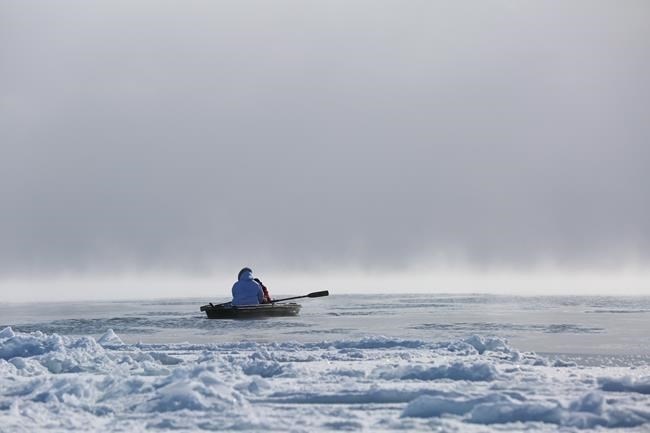
A scene from the documentary "Angry Inuk," is shown in a handout photo.
Image Credit: THE CANADIAN PRESS/HO-Hot Docs Festival
May 08, 2016 - 6:00 AM
TORONTO - Growing up in Iqaluit, Alethea Arnaquq-Baril went seal hunting with her family and learned how to use the entire mammal for food, clothing and other needs.
She was raised to respect the seal and was saddened when she realized animal welfare groups were portraying the hunt as evil and greedy, creating campaigns that crushed their industry.
Arnaquq-Baril is hoping to clear up misconceptions about the seal hunt and raise awareness about the Inuit role in it in the new documentary "Angry Inuk."
"Mainly what I'm hoping is that when people see this film, they'll recognize that Inuit are not only an important part of the commercial seal skin market," she says, "but that the majority of commercial seal hunters are Inuit who eat the meat and share the meat with their friends and family and really depend on those seal skin sales in order to buy more fuel and ammunition to continue hunting.
"It's a food security issue for us. Seven in 10 Inuit children go to school hungry and I think these anti-seal-hunt campaigns are a factor in the state of poverty and hunger that exists all across the North today."
"Angry Inuk" is making its world premiere at Toronto's Hot Docs Canadian International Documentary Festival, which runs through Sunday.
According to the doc, anti-sealing campaigns almost entirely depict the spring hunt around Newfoundland and Labrador, making it seem as if most seal skins come from there. But what many don't realize is that most seal hunters are actually Inuit and hunt around the Canadian Arctic as well as Alaska, Greenland and Russia, Arnaquq-Baril says.
The film also posits that fighting seal hunting is an important part of fundraising campaigns for animal rights groups.
"You see a couple of seal hunts in the film, so people can see for themselves and decide for themselves whether they think it's inhumane or not," says Arnaquq-Baril.
"But historically Inuit haven't been challenged a whole lot on how we kill seals and I think largely because when people see it, they see Inuit respect the animal and use all of the meat and the skin.... Our problem is even just being heard when we say, 'We sell seal skins and we are part of the commercial market,' and when dozens of countries pass legal bans on seal products, that affects us and it affects us more than anyone."
News from © The Canadian Press, 2016